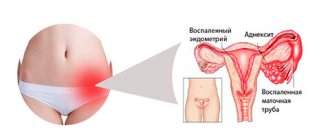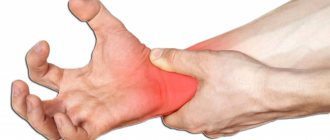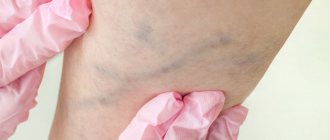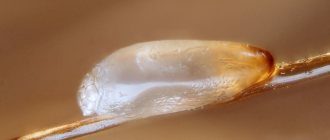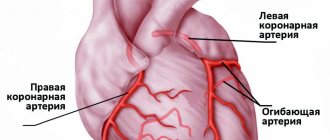Published: 09.29.2021 13:50:00 Updated: 09.29.2021
Menopause in women is the age-related decline in ovarian function and the gradual decline of childbearing function. The average age of onset of this condition is considered to be the period from 45 to 55 years, and menopause lasts 15-18 months. Changes in the body affect not only the reproductive organs, but can also lead to the development of many serious diseases. Therefore, women of the appropriate age at the first symptoms of hormonal changes are recommended to be observed by a gynecologist-endocrinologist and undergo regular diagnostic procedures.
Three stages of menopause
The time when a woman enters menopause is conventionally divided into several phases:
- Premenopause. The period when menstruation begins to occur irregularly, the duration and volume of discharge are reduced, but the ovaries still continue to work. It is at this time that the first irreversible changes in the cardiovascular, nervous systems and musculoskeletal system begin. During premenopause, it is important not to waste time, pay attention to your well-being and the changes that are taking place, engage in replacement therapy and prevent the body from aging dramatically. This phase begins at the age of 47-48 years and lasts on average 3 years.
- Menopause. Occurs two years after the complete cessation of regular menstruation. However, a woman still has a slight chance of becoming pregnant, because the ovaries retain a certain number of follicles ready for fertilization. Further, the eggs no longer have time to mature due to the aging of the ovaries. On average, menopause begins at the age of 49-55 years.
- Postmenopause. The time of complete cessation of ovarian function. This phase begins after age 55 and lasts 6 years or more.
How long does menopause last?
Menopause can last several years. This is an individual question for each of the ladies. According to the duration of menopause, it can be divided into three periods:
- premenopausal period – menstrual irregularities occur,
- perimenopausal period - the last menstruation begins,
- postmenopausal period - occurs one year after the last menstrual bleeding.
Ladies may experience each of these stages differently. Symptoms that occur during these periods may vary in frequency and intensity.
What determines the time of menopause
It is impossible to predict exactly when a woman will go through menopause. But there are factors that influence the onset of menopause:
- heredity. If the older generation of a family experiences late menopause, there is a high probability that daughters and granddaughters will also;
- social living conditions. If a woman lives in difficult living conditions, is forced to eat poorly, smokes and does hard physical labor, she will most likely experience early menopause;
- past illnesses. Severe physical illnesses bring the onset of menopause closer. Risk factors include high obesity, high blood pressure, elevated sugar and cholesterol levels.
- psychological factor. Menopause comes later to happy women who are in a harmonious marriage, raising children and living without conflict in families consisting of several generations.
- living in areas with poor ecology. Environmental pollution and hazardous chemicals act as endocrine disruptors.
Sources
- Yoshida K., Sanada-Morimura S., Huang SH., Tokuda M. Silence of the killers: discovery of male-killing suppression in a rearing strain of the small brown planthopper, Laodelphax striatellus. // Proc Biol Sci - 2021 - Vol288 - N1943 - p.20202125; PMID:33468006
- Biddau M., Bouchut A., Major J., Saveria T., Tottey J., Oka O., van-Lith M., Jennings KE., Ovciarikova J., DeRocher A., Striepen B., Waller RF., Parsons M., Sheiner L. Two essential Thioredoxins mediate apicoplast biogenesis, protein import, and gene expression in Toxoplasma gondii. // PLoS Pathog - 2021 - Vol14 - N2 - p.e1006836; PMID:29470517
- Peckham RK., Brill R., Foster DS., Bowen AL., Leigh JA., Coffey TJ., Flynn RJ. Two distinct populations of bovine IL-17⁺ T-cells can be induced and WC1⁺IL-17⁺γδ T-cells are effective killers of protozoan parasites. // Sci Rep - 2014 - Vol4 - NNULL - p.5431; PMID:24961164
- Chhajer R., Ali N. Genetically modified organisms and visceral leishmaniasis. // Front Immunol - 2014 - Vol5 - NNULL - p.213; PMID:24860575
Causes of early or abnormally late menopause
Is it possible to delay the onset of menopause and the appearance of the first signs of old age? There are rules of life that can delay the arrival of “female autumn.”
The causes of early menopause are:
- smoking and alcohol abuse;
- multiple abortions;
- irregular sex life;
- excess weight;
- violation of the daily routine, non-compliance with the daily rhythms of sleep and wakefulness;
- stress;
- unbalanced nutrition, diets, food restrictions;
- diseases related to metabolism, endocrine system, autoimmune diseases, oncology;
- gynecological pathologies, ovarian surgeries;
- illiterate hormonal contraception;
- living in an unfavorable climate.
The reasons for the late onset of menopause may be:
- heredity;
- hormone-producing tumors;
- radiation and chemotherapy
- gynecological diseases (uterine fibroids, ovarian dysfunction)
How to determine the onset of menopause
The first sign of menopause is irregular menstrual cycles. But modern women, whose lives are associated with constant stress, unfavorable environment and irregular periods, most often do not pay attention to such “little things”.
At the onset of menopause, due to hormonal imbalance, postmenstrual syndrome often worsens, mood swings, melancholy, and depression appear.
An FSH test is used to determine the onset of menopause. The level of this hormone steadily increases in the urine during menopause, and during the reproductive period its content depends on the periods of the menstrual cycle.
If a woman continues to menstruate, but signs of menopause have already appeared, the test is carried out on the sixth day from the start of menstruation and repeated a week later.
If menstruation is already irregular, tests are carried out on any day and repeated at intervals of a week. It is necessary to observe how menopause manifests itself.
Important! Early menopausal changes can be slowed down if you pay attention to the first symptoms and consult a gynecologist. Therefore, medical examination should be carried out regularly, even if you feel well.
Menopause and pregnancy
Many women confuse the premenopausal period with menstrual irregularities with the last period - menopause. There may be a gap of several months before the last bleeding, which women consider favorable and stop using contraceptives. This is also the time when the most fertilizations occur.
It should be remembered that at this age pregnancy is subject to many complications, so constant and comprehensive specialized care is necessary. However, if your doctor confirms menopause using hormonal tests, fertilization may not be possible.
Symptoms of menopause
Menopause in women is not a disease. It is important to recognize the approach of menopause by characteristic signs and know the characteristics of your body's reaction.
Here are the most characteristic symptoms of menopause:
- Tides. The most typical symptom of menopause. The woman feels heat rising to her face and neck, and red spots appear on the skin. Hot flashes occur frequently, up to several times a day.
- Sweating. As a rule, it accompanies hot flashes.
- Bone fragility. During this period, the body loses calcium, up to 2% of bone mass annually. There is a risk of bone fractures even with minor external impact.
- Appearance changes. The body produces less collagen, the skin loses elasticity, dryness and wrinkles appear. Metabolism slows down, resulting in excess weight even if the same diet is followed.
- Prolonged weakness. Hormonal changes lead to causeless loss of strength, fatigue, and loss of performance.
- Emotional instability. Women experience internal restructuring in different ways; those around them often note irritability, tearfulness, and changes in behavior that were previously unusual for them. Sometimes the mood worsens and depression occurs.
- Changes in the perception of the surrounding world. This may be an inexplicable feeling of anxiety, danger, fear, or intolerance to strong smells and sounds.
- Insomnia. More than a third of women who have entered menopause deal with sleep disturbances. Difficulty falling asleep, frequent awakenings at night, difficult getting up in the morning complicate the quality of life and spoil the mood. A woman who was unable to rest at night is haunted by fatigue.
- Physical ailment. During menopause, headaches similar to migraines, dizziness, and nausea often occur. Periodically, the heartbeat quickens, there is a feeling of lack of air and a lump in the throat. Chills or shortness of breath appear.
- Problems in the intimate sphere. Due to the dryness of the genitals, sexual intercourse becomes painful, the vaginal mucosa becomes thin and sensitive. The situation becomes more complicated when atrophic cystourethritis occurs - frequent and painful urination, or prolapse and prolapse of the uterus.
Important! Not all women experience the unpleasant symptoms characteristic of the onset of menopause. More than half admit that they felt only minor discomfort, and every tenth woman did not feel it at all.
Treatment with herbal preparations8
In a situation where early menopause cannot be corrected with hormonal therapy, the doctor may recommend that the woman take herbal medicines. Such drugs are less effective and do not have the systemic effect necessary to prevent bone fragility, cardiovascular pathologies and other serious conditions associated with a deficiency of female hormones during menopause. They can slightly reduce the intensity and frequency of hot flashes. Herbal origin makes these drugs safer. However, you should not give preference to taking phytoestrogens if there are no contraindications to hormonal therapy, but there are symptoms of menopause that worsen the quality of life.
Some plants contain phytoestrogens, hormone-like compounds that can also help women going through menopause. They are found in significant quantities in soybeans, red clover, and flax seeds. Red clover is most often used to make herbal medicines. It contains several types of compounds similar in structure to the hormones of the female body.
Early menopause is an unpleasant condition, but not a death sentence. If menopause comes early, a woman has the opportunity to restore the menstrual cycle and reproductive function.
You will need the help of a specialist and hormonal therapy. It is important not to miss the moment, not to hope that the problem will resolve itself and not to delay contacting a specialist. A complete examination and timely treatment are fundamental factors for the successful prevention of early menopause. Find the right specialist here.
It is also important during this period to take care of your health and positive attitude, to maintain activity and relationships with the opposite sex. Remember that menopause is simply an inevitable stage in the life of every woman, which, with an optimistic attitude, can be overcome with dignity and with minimal difficulties.
Womenfirst
- Gevorkyan M. A., Manukhin I. B., Kazenashev V. V. Experience in the use of hormone therapy for menopausal disorders // Farmateka. – 2006. – No. 2. – P. 34-8.
- Tatarchuk T. F., Efimenko O. A., Tutchenko T. N. Stress and involution of the woman’s reproductive system // Women’s reproductive health. – 2007. – No. 5. – pp. 153-157.
- Ovsyannikova TV et al. Drug treatment methods for patients with vasomotor symptoms of menopause. – 2010. P. 75-77.
- Dyukova G.M. Quality of life of a woman during menopause // Attending physician. – 2003. – T. 1. – P. 48-50.
- Ovsyanik O. A. The role of physical culture with elements of impact contact martial arts in the adaptation of women of the second period of maturity (40-60 years) // Scientific notes of the University. PF Lesgafta. – 2011. – T. 79. – No. 9.
- Gynecology T. B. Menopause: age-related changes and methods of their correction // Russian Medical Journal. – 2007. – T. 15. – No. 17. – pp. 2-4.
- Vorontsova A.V., Zvychayny M.A., Mityashina A.M. Woman, menopause and aging // Experimental and clinical dermatocosmetology. – 2012. – No. 5. – pp. 51-56.
- Smetnik V.P., Karelina S.N. Alternative ways to correct menopausal disorders // Menopause. – 2004. – T. 4. – P. 3-6.
RUFMS181757 from 04/27/2018
Diagnostic methods
The first signs of menopause in women are quite characteristic if they are considered in their entirety - hot flashes, headaches, sweating, pressure surges. But patients do not always realize that premenopause has set in and go to the clinic, fearing illness.
In order to establish the cause of female ailments and identify signs of menopause, the doctor will:
- collection of anamnesis data: when the first menstruation began, the duration and duration of the last menstruation, heredity in the female line. Important information will be provided by information about the peculiarities of a woman’s well-being and psycho-emotional state recently;
- analysis of the endometrium of the uterus and smear examination;
- examination of the genital organs, palpation of the pelvic organs;
- ultrasound examination of the pelvic organs and thyroid gland;
- study of hormone levels (FSH, progesterone, TSH, T3, T4, prolactin, estradiol, testosterone);
- blood chemistry;
- bone density test;
- mammography;
- ECG.
What is typical for menopause?
The onset of menopause is preceded by the last menstruation. The intervals between menstruation during premenopause can reach six months; it is impossible to predict which one will be the last. It may take a long time to realize that this phase has arrived.
The symptoms of menopause have certain differences from the previous stage. The intensity of manifestations increases, discomfort increases. The mucous membranes succumb to atrophy, which can cause intense pain.
The following complications are likely:
- the appearance of excess weight, especially in the abdomen and waist;
- dizzy;
- an inflammatory process forms on the cervix;
- osteoporosis develops.
Typically, this stage occurs in women at the age of 50, but under the influence of negative factors it can happen earlier.
In women who smoke, menopause occurs 4-5 years earlier than in non-smokers.
Additional consultations for menopause
Depending on laboratory test data, a woman may need additional consultation with specialized specialists. They will help distinguish the symptoms of menopause from the manifestations of pathologies.
Your doctor may recommend a consultation:
- cardiologist, this is important. to avoid heart problems;
- rheumatologist. Timely treatment will help avoid menopausal arthritis, a disease characterized by joint pain, stiffness and swelling. Its root cause may be a change in hormonal levels, then systemic or inflammatory diseases are added;
- endocrinologist. Having assessed the hormonal levels, the doctor will recommend correction of the condition - drug therapy, treatment of concomitant diseases, diet, work and rest;
- neurologist. Recommendations from a specialist will help reduce the load on the nervous system and teach you how to deal with insomnia and panic conditions. Treatment can be gentle and affordable, for example, with herbal preparations;
- ophthalmologist During menopause, you need to monitor intraocular pressure and vision.
Treatment methods for menopause
There is no need to endure the unpleasant symptoms of menopause. There is a new interesting stage of life ahead and there are many ways to prolong youth and avoid poor health.
There are several ways to bring your health back to normal:
- Hormone replacement therapy. A method based on replenishing one’s own sex hormones, which the body produces less and less. To do this, you need to take their synthetic analogues. True, this method has many contraindications, and it is also quite difficult to choose the optimal hormonal drug. The wrong choice can lead to side effects.
- Phytotherapy. Herbal infusions and preparations prepared on the basis of herbs act gently, effectively and have almost no adverse reactions. The disadvantages of the method are that herbal treatment courses should be used for a long time and allergies may occur.
- Drug therapy. Drugs specially designed for menopausal women work well. Symptomatic remedies are designed to reduce anxiety, restore sleep, and relieve somatic and vegetative features. The doctor must select the medicine and determine the duration of treatment.
- Psychotherapy. Classes with a psychologist help women get rid of anxiety, cope with low self-esteem and see the new horizons that entering a new stage of life opens up for them. Classes are often combined with relaxing practices - yoga, meditation.
Physical activity and a special diet that takes into account the new needs of the body will help to cope with unpleasant symptoms. Physiotherapeutic procedures and exercise therapy are always appropriate. However, the load must be dosed and take into account the condition of the woman’s body.
Diseases that may occur during menopause
If you feel unwell, contact your doctor. Diseases can be associated not only with hormonal disorders, but also with more serious conditions, a consequence of an imbalance of sex hormones and disorders of the adrenal glands.
The main diseases of the menopause:
- nervous and mental disorders;
- depression;
- headache;
- insomnia;
- forgetfulness;
- pathologies of the pancreas and thyroid glands;
- paresthesia;
- convulsions;
- disorders of salt metabolism.
How to ease your mental state?
At the same time, psycho-vegetative changes occur:
- You constantly want to sleep, and at the same time you feel a weakness that is not typical for you.
- Constant anxiety, restlessness, absolutely everything is irritating to the point of horror.
- You become forgetful, inattentive, and become depressed. Here, my dear, there is no need to launch her under any circumstances.
- I will say that I myself saved myself by taking Fluoxetine; 1 capsule in the morning 20 mg. You can drink it 2 times a day, but a single dose also helped me. I drank for 12 days. Three weeks break and then again.
- It accumulates in the tissues, so that until all of it is eliminated from the body, another week has passed. This is how I saved myself, otherwise I couldn’t pull myself together.
All changes that occur in a woman’s body are reflected in her appearance, mental state, and health. And the reason for all these changes is the lack of production of female sex hormones - estrogens. Only their replenishment will help. Do not take hormonal medications yourself; this should be done by a doctor after a thorough examination.
Suddenly you discover benign tumors (fibroids, mastopathy), serious heart diseases.
Hormonal drugs with such health problems are contraindicated; do not self-medicate with serious medications. Menopause is the last period in a woman's life. Their absence for a year is postmenopause.
General recommendations for women
The menopause period can last more than 10 years. To survive this time without loss and enrich your life with new achievements, a psychological attitude and a healthy lifestyle are important.
Menopause is easier for active women who love life and have diverse interests. Here's what will keep your mind and body strong:
- Physical activity should range from 15 to 60 minutes daily. This will not only strengthen the muscles, but also ensure good nutrition and blood supply to the brain, and establish strong connections between nerve cells. Aerobic exercises, walking, running, swimming, and exercise on an exercise bike are encouraged.
- It is necessary to introduce nuts and fatty sea fish containing omega-3 fatty acids into the diet, eliminate or reduce the amount of easily digestible carbohydrates and animal fats, and reduce the calorie content of the diet.
- Quitting smoking and drinking alcohol.
- Maintaining social activity, favorite work and hobbies, communication and increasing your circle of friends.
- You should not give up sex life; intimate relationships are among the basic needs of a person. This will help preserve youth and paint relationships with bright colors. A doctor will help you solve the unpleasant symptoms that accompany your personal life during menopause - this may include prescribing HRT or herbal medicine.
The main problems for women during menopause
One of the most striking problems of this period is the violation of intimate life. A woman’s desire naturally decreases, discomfort appears during sex, and the amount of natural lubrication decreases. But this is not a reason to give up intimate life altogether!
It is important to discuss the problem with your doctor and select special products - lubricants (for example, with a warming effect) that will relieve discomfort. It is also necessary to replenish the balance of hormones, which we will discuss later in the article.
In some cases, uterine bleeding that is not menstrual is possible. In this case, it is necessary to consult a gynecologist as soon as possible to avoid the development of pathologies.
Also, during menopause in women, calcium is actively washed out of the bones, which causes the development of osteoporosis - fragility of bone tissue. Modern diagnostics make it possible to detect the development of osteoporosis in a timely manner. And prevention will be stable moderate physical activity, a nutritious and varied diet.
Preventive measures for menopause
To maintain good health, feel the joy of life and achieve success, it is important:
- undergo regular medical examinations;
- take medications to alleviate menopause;
- regularly take vitamin and mineral complexes;
- use cosmetics as methods of combating the external manifestations of menopause;
- monitor hygiene in the postmenstrual period;
- have regular sex life;
- lead a healthy lifestyle
